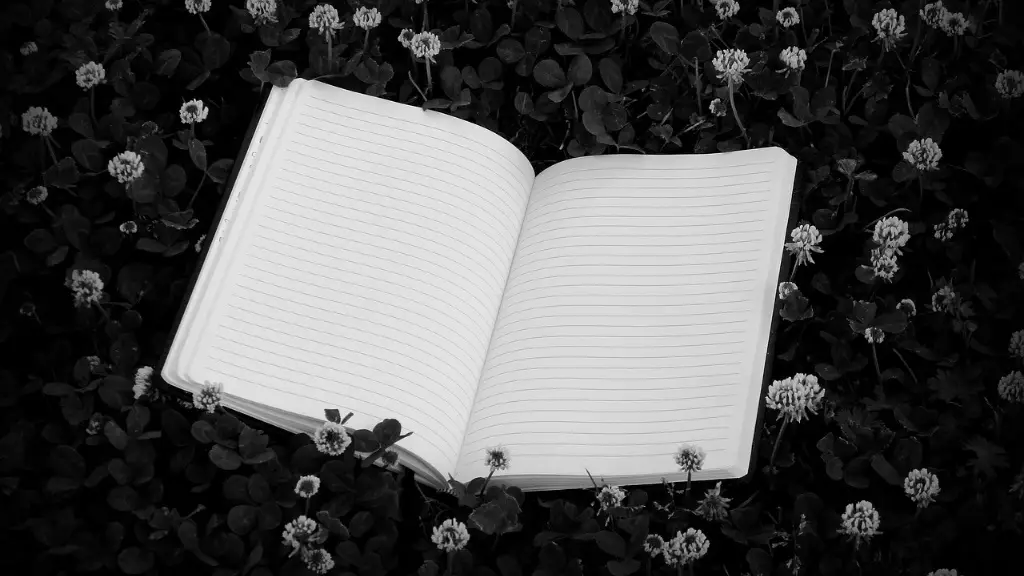The concept of poetry according to Aristotle is one that has attracted a wide range of interpretations. Its definition, by Aristotle himself, has at times been disputed and often disagreed upon. Though Aristotle was unable to provide a satisfactory definition of poetry, the ideas he proposed have strongly impacted the way we understand poetry today.
Aristotle believed that poetry was an imitation of reality, and that the poet’s role was to recreate the truth. By his definition, poetry was a “medium of imitation” and its purpose was to inform, to teach and to entertain. He argued that by using a combination of language and rhythm, poetry was capable of achieving a higher level of truth than simply that of ordinary discourse. He believed that poetry had the power to capture human emotions and transcend the limits of the written language.
In his Poetics, Aristotle stated that the content of poetry must be unified by a single purpose and that it should convey a moral or point of view. Furthermore, he proposed that the structure and form of the poem should reflect its purpose, and that the words and rhythms used should enhance this purpose. This worldview was highly influential; it has been suggested that Aristotle’s Poetics was responsible for making the aesthetic approach to literature popular.
Bertrand Russell, the renowned British philosopher, described Aristotle’s view of poetry as “the most satisfactory account of the nature of poetry that has ever been produced.” Furthermore, Russell argued that Aristotle was correct in noting that the purpose of poetry should be both to teach and to entertain. Yet, he suggested that Aristotle did not give enough attention to the emotional aspect of poetry, stating that “Aristotle’s notion of catharsis is insufficiently related to feeling.”
It is clear that Aristotle’s perception of poetry left an indelible mark on the literary world. His notion of the imitation of reality, his emphasis on the structural and formal aspects of the poem, and his emphasis on the moral and entertainment aspects of poetry all remain relevant to this day. In addition, his idea of catharsis as an emotional release also has lasting implications, even though he perhaps did not go far enough in emphasizing the emotional aspects of poetry.
Meter of Poetry in Aristotle’s Eyes
Aristotle believed that the meter of a poem was a very important part of its structure and content. He argued that the right meter could convey a message in a more effective way than words alone. He noted that the metric structure of dactylic hexameter, in particular, created a sense of rhythm and flow that made it particularly appropriate for the communication of complex ideas such as emotions and abstract concepts. Aristotle’s emphasis on the importance of meter in poetry has had a profound effect on the way we compose and interpret poetry today.
Poetry According To Aristotle And Plato
Aristotle’s ideas about poetry were heavily influenced by his mentor and predecessor Plato. For Plato, poetry was a form of rhetoric, and he argued that it should be classified according to the various kinds of rhetoric, such as deliberative, forensic, and epideictic. Plato argued that poetry should not be judged on how true the story is, but instead on its ability to enlighten, educate and persuade. He also emphasized the importance of structure, noting that the arrangement of words was important in crafting an effective poem. Although the two philosophers disagreed on many aspects of poetry, Plato’s influence on Aristotle undoubtedly shaped his views on the subject.
Aristotle’s Three Levels of Poetry
Aristotle distinguished three levels of poetry in his Poetics: epic, tragedy, and comedy. Epic poetry was meant to venerate heroes and communicate moral truths. Tragedy, for Aristotle, was a form of story-telling that used heightened language and intense emotion to convey an important moral lesson. Lastly, comedy was a form of satire that used humor to make observations about human behavior. For Aristotle, each type of poetry had its own distinct purpose, and he argued that each should be judged by its ability to fulfill that purpose.
Aristotle’s Inclusion Of Music
Aristotle understood the important role of music in poetry. For him, music was inherently connected to the form and content of a poem, and he argued that it should be taken into account when evaluating a poem’s merit. He noted that some meters of verse were more suitable for certain kind of poems and that the use of certain instruments could enhance the effect of a poem. Aristotle’s view of the interrelatedness of music and poetry has greatly informed the way we analyze and create poetry today.
Aristotle’s Impact
Aristotle’s views on poetry have left a lasting impact on the way we analyze and create poetry. From his insistence on the importance of structure and form to his belief that music was integral to the creation of a poem, Aristotle has forced us to view poetry in a new light. His ideas have been the source of countless scholarly debate, and his influence on the way we understand poetry today is undeniable.


